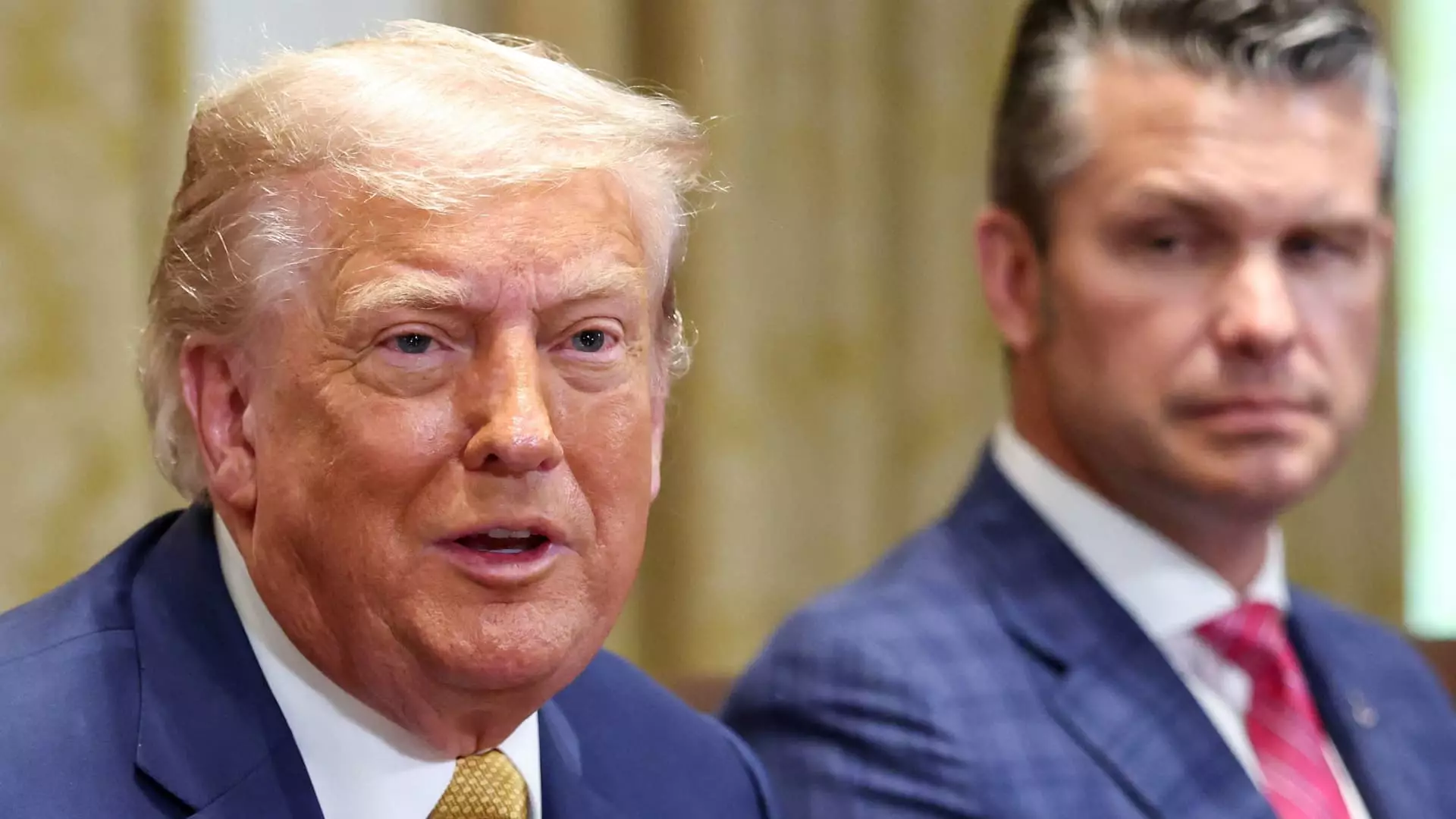The recent escalation in rhetoric by President Donald Trump regarding potential tariffs on pharmaceuticals exposes a troubling disconnect between political strategy and economic reality. While the administration claims these tariffs are necessary to bolster U.S. manufacturing, the reality suggests a misguided pursuit that could ultimately undermine the very health and innovation they allegedly seek to protect. Tariffs, especially at the staggering rate of 200%, are more than just economic tools—they are blunt instruments that risk damaging intricate supply chains and disincentivizing innovation critical to a thriving healthcare sector.
Such aggressive trade measures tend to oversimplify complex global industries. Pharmaceuticals are inherently intertwined with international cooperation, cutting-edge R&D, and supply chains that span the globe. Imposing high tariffs disrupts this delicate ecosystem, likely elevating drug prices and restricting access for American consumers. This approach echoes protectionist policies of the past, which have historically failed to deliver sustained economic benefits, often generating unintended collateral damage instead. In this case, the potential to create shortages or delay critical treatments raises serious ethical and public health concerns.
Economic and Ethical Pitfalls of Tariffs on Innovation
The Trump administration’s rationale—that tariffs would “bring manufacturing back to America”—is fundamentally flawed. While some pharmaceutical companies are increasing U.S. investments, these are driven by strategic business decisions rather than punitive tariffs. What’s more troubling is the broader message that bold tariffs are a quick fix, dismissing the importance of innovation and global cooperation in fostering breakthroughs in medicine.
Investors and industry insiders remain largely unshaken, highlighting a key point: tariffs might be politically convenient, but they are economically damaging. High tariffs push up costs for manufacturers, which they will inevitably pass on to consumers. This risks creating a situation where new treatments become prohibitively expensive or simply unviable to develop, ultimately penalizing patients who rely on innovative medicines. If the goal is to protect American health, undermining the innovative capacity of the pharmaceutical industry hardly serves that purpose.
Public health advocates and industry leaders warn that such protectionist measures could backfire, threatening to destabilize the very supply chain necessary for access to life-saving medications. The increased costs and investment uncertainty could stifle R&D, slow down breakthroughs, and shore up reliance on foreign manufacturing regardless of tariffs—an ironic outcome that defeats the purpose of promoting U.S. industries.
A Dangerous Precedent for Policymaking
The broader implication of Trump’s tariff threats is a concerning shift towards aggressive economic nationalism that risks neglecting nuanced policymaking in favor of quick political victories. Tariffs at such destructive levels set a dangerous precedent, communicating to global partners and domestic innovators alike that American policy may be unpredictable and punitive.
A more constructive approach would focus on fostering fair trade agreements that incentivize innovation, protect intellectual property rights, and promote global cooperation. Tariffs may promise short-term political gains, but long-term economic stability and public health depend on stable, collaborative approaches that recognize the complex nature of the pharmaceutical industry. Without thoughtful policies centered on research, innovation, and equitable access, these threats risk damaging American leadership and the health of its citizens over misguided notions of economic nationalism.

